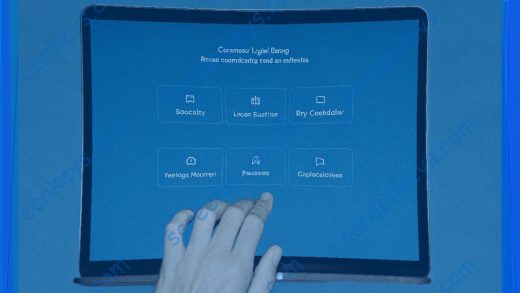What Are Court Fines?
Court fines are financial penalties imposed by a judge as part of a sentence in a criminal case. They are commonly assessed in addition to other sentences, such as incarceration or restitution for victims. Courts typically have discretion to determine the amount of the fine, which may be based on a flat fee schedule or calculated from a base penalty. For example, a fine may be based on a percentage of the cost of the drug sold to the defendant, while a DUI fine may be based on the cost of the defendant’s blood alcohol test. A court may charge a defendant a fine of a few hundred dollars for a speeding offense, and a fine of several thousand dollars for drug trafficking.
In some circumstances, certain types of fines must be paid to the defendant’s county , which can interfere with providing restitution to the victims of crimes. To avoid this issue, California law requires that a portion of each fine be passed to the state and a portion be paid to the county, if one exists, where the offense was committed ("below"). In this context, fines could also be thought of as fees. The distinction is material if there are any variations in statute of limitations between fees and fines.
Fines serve a number of functions. One of the most important is serving as a deterrent to crime. Prosecutors often assess fines as part of plea deals. While Magistrate Judges also assess fines, it is rare that a fine will constitute more than a small fraction of the total fine owed.
The Finer Details: Statute of Limitations
A statute of limitations is a legal claim or demand, financial or otherwise, that will not be enforceable after a certain period of time. The statute of limitations acts as a contradictory to the "infinite monitoring" of historical debt, claims and encumbrances and is a defense for specific lapses of time in legal proceedings. The judicial branch of government underpins the application of statute of limitations, and the legislative branch defines the periods of statutes of limitations for various legal proceedings and actions; statutes of limitations are enacted as legislative acts as opposed to judicial acts (oaths of office notwithstanding). Statutes of limitations are, however, judicially enforced as a practical consideration. Despite the general working of the statute of limitations in most states, there are many exceptions. As a result, statutes of limitations vary widely by jurisdiction and by the specific actions being challenged.
Statutes of limitations stem from common law concepts of laches, which empowers the court to act or refrain from acting according to the dictates of justice, equity and good conscience. Laches is not implemented purely on the basis of time; instead, the reasonableness of the delay is often an important factor to the analysis of a laches defense. Legislative enactments of statutes of limitations attempting to define milititate claims are attempts to limit the application of the equitable doctrine of laches.
Statutes of limitations can be tolled, or delayed, for several different reasons. For example, the statute of limitations may be tolled for certain claims where the creditor is out of state. In some circumstances, a creditor can extend the statute of limitations by acknowledging the debt. Although statutes of limitations are strictly enforced by courts, the statute can often be tolled for a number of complicated reasons.
Do Court Fines Fall Under the Statutes of Limitations?
General Practice is that Fines are Subject to Statutes of Limitation
In most jurisdictions, the general practice is that court-imposed fines are subject to statutes of limitation. Time limitation statutes are laws passed by legislatures in order to formalize and encourage the judicial process, but the statutes do vary between jurisdictions regarding the timing and any exceptions. In some jurisdictions, especially for municipal ordinances, fines may be placed into abeyance for a longer period of time in order to avoid the statute of limitations. In either scenario, most courts will stay judgment on collection of the fine and/or attach a condition to the fine, such as the successful completion of probation, to prevent the fine from being deemed expired. There are a number of states which have an exception for an extant criminal case to toll the statute of limitation until the Court discharges the defendant. Some municipalities may have different rules governing the timeframe in which fines are enforceable even when they are acting as another party representing the state. However, the general rule in most states is that statutes of limitation apply to minor offenses as they do to felonies. The biggest difference will often be the time of expiration. As previously mentioned, ordinances may be subject to a longer lapse of time which a fine is valid, so this should be accounted for on a state-by-state basis. Another aspect which is often overlooked in enforcement situations, and also the resolution of municipal violations is that, in most instances, the amount of time to enforce a debt, whether subject to interest or not, is the same irrespective of whether the validity to the debt is derived from a federal statute, state statute, municipal ordinance or common law. While it is always best to know the statute of limitations for each state, as well as the applicable exceptions (especially for municipal ordinances), the good news is that in most cases, timeliness should not be an issue.
Are There State Statute of Limitation on Court Fines?
Statutes of Limitations on Court Fines Vary by State
With regard to state and county fines, however, there is no uniformity. Here are several examples:
North Carolina: Fines assessed in the District Court are due immediately. G.S. 7A-305. If not paid, they become a debt due to the State. These debts are debts of record and the clerk has the authority to issue an abstract of judgment and file it in the office of the register of deeds in any county in the state. These debts are then included in the judgment docket by the register of deeds. This then becomes a lien on any property owned by the debtor in that county. The statute does not say that these judgments expire. They are treated like any other civil judgment in that they are good for 10 years and can be renewed thereafter. N.C.G.S. 1-47. As a result of this statute, mentioned above, it is not unusual to see a judgment for a court fine which dates back many years that is still active due to renewal.
California: Summary Criminal Offenses are three years. Vehicle Code violations and infractions are one year. Local ordinances are one year. Penal Code violations are one year, with a few exceptions.
Alaska: Except for DWI/DUI and several sex offenses, summary offenses have a 2 year statute of limitations. Misdemeanors have a 2 year statute. DWI/DUI has a 1 year statute of limitations. Felonies have a 5 year statute of limitations.
Texas: Class C misdemeanors for traffic and other offenses punishable by fine only have a 2 year limitations period. Class B misdemeanors are 2 years. Class A misdemeanor and felonies are 3 years. Capital felonies have no limitations period.
Oregon: Traffic violations are 2 years. General misdemeanors have a 2 year statute of limitations; felonies are 6 years. Felony driving under the influence has a 2 year statute of limitations.
Ohio: Felonies and misdemeanors are six years. Petty misdemeanors are two years.
The Effect of Unpaid Court Fines
If court fines are not paid within the time limits set out above, then adverse actions can be taken against the offending party.
In felony cases, the court may issue a bench warrant for the arrest of the delinquent payer. The arrest warrant is similar to other fellows arrest warrant, however, the arrest warrant will also contain a "hold" provision which will require the "arrestee" to be brought before the court to determine whether or not he has the ability to pay. In misdemeanor cases, the court may issue a civil contempt warrant for the arrest of the delinquent payer. The civil contempt warrant requires the officer to merely to arrest the individual and bind the person over to the court. Once arrested, the person will then be brought before the court to determine whether he has the ability to pay fines and costs within his means. If the court determines that the person does have the ability to pay, then the court will order the individual to do so. If the individual refuses to pay, then a judge will hold the person in contempt of court and a hearing will be scheduled at a later date to determine the person’s housing status as well as his ability to pay the fines and costs. At that latter hearing, if it is determined that the person has the ability to pay fines and costs, then a judge will order the person to do so and failure to pay may result in jail time. If a defendant is serving jail time at the time the fines and costs are ordered, then the fines and costs do not begin to accrue until she is released from service. If the defendant is already in jail at the time she is ordered to pay fines and costs , then all fines and costs continue to accrue until her release so long as she has not been convicted at a trial. If the person is convicted at a trial, then the court will set the fines and costs and, if probation is granted, the person will then be released to the supervision of a probation officer with a given amount of time to pay the fines and costs. Failure to pay court-ordered fines and costs will result in a delinquent account being referred to the collection agency. A collection agency will seek to collect the delinquent amount by garnishment of wages or bank accounts, by placing liens upon real property or by employing other legal collection methods. Referrals to the collection agency will not automatically result in a garnishment of wages or attachments of bank accounts due to the fact that the collection agency will not know when a defendant has come into a judgment in a personal injury matter or has sold a house. However, a referral to the collection agency will result in the defendant’s name showing up on an "internal watch" list. If the defendant attempts to retain an attorney who needs to file a Notice of Appearance in a case, or if they attempt to place the title of an automobile in their name, their name may appear on an internal list which is periodically checked by the Clerk’s Office to determine if a defendant has any outstanding delinquent court costs. Also, if the order has been referred to the Attorney General’s Office, then the delinquent amounts may be reported to the credit bureau which will result in the person having a lower credit score.
New Laws and Statutory Changes
In recent years, state legislatures and courts have taken steps to clarify and strengthen statutes of limitations concerning court-imposed fines and costs. For instance, a handful of states have adopted specific statutes of limitations for making sure that judgment (i.e., a fine or court cost) remains valid after the passage of time. These recent changes seem especially timely given recent reports of states attempting to collect on court-related debts going back fifteen years or more, at risk of exacerbating socioeconomic disparities among defendants.
Courts across the country continue to take steps to reduce the application of statutes of limitation for the collection of court-related debts. Many courts have held that the statutes of limitation do not apply to all court-related debts. Some courts have rejected the premise that a court-related debt cannot be discharged in bankruptcy. Other courts have held that the doctrine of laches (the equitable principle by which courts may refuse to enforce equitable rights or remedies when the enforcement would offend a public policy or when the complaining party has unreasonably delayed in filing the suit) should not bar the collection of court-related debts even where the statute of limitation has arguably expired.
The recent United States Supreme Court case, McDonough v. Smith, is potentially relevant to fines, fees, and costs. McDonough involved a 42 U.S.C. § 1983 case about the continuing validity of his fine based on the statute of limitations. There, an indictment based on fabricated evidence drew a $5000 fine proscribed by New York Election Law. After the indictment was annulled because it was invalid on its face and based on fabricated evidence, McDonough filed his Section 1983 lawsuit. The Second Circuit reversed, holding that the availability of a writ of coram nobis provided relief for McDonough’s claim, and that the statute of limitations began to run once McDonough was convicted, rather than when the indictment was annulled. (This seems to imply that when a legal defect is present in an indictment that leads to a conviction, the only recourse for the defendant is a subsequent indictment free of the defect, rather than a coram nobis petition seeking relief from the prior invalid conviction.)
Looking ahead, the United States Supreme Court is slated to hear the case of Amber Shaw and Charles Palmer on November 27, 2018, involving an alleged probationary sentence that was "merely an illusion" in Shaw v. Martin. In their ruling, the justices are asked to determine whether the Virginia Circuit Court impermissibly extended Shaw’s probation beyond the original term imposed by the court. In addition, the Virginia Supreme Court had reasoned that the plaintiffs are not entitled to declaratory relief because they have not alleged any "imminent threat" that the defendants will seek to reincarcerate them. The justices’ decision, expected in early 2019, may impact how to define the limits on the ability of courts to impose sanctions (such as fines, costs, and other court-imposed debts).
When to Consult a Lawyer on Court Fines
One of the ways that lawyers can help clients is by providing clarity on issues of law and fact that are needed to make important decisions in life. If you are unsure about the status of court fines or other legal obligations, the best way to get clarity about your situation is from a lawyer. Too many people are uncertain about their rights when it comes to a court fine or citation. Far too many people accept the first court related notice they are given, as the final answer for what they owe. That has too often turned out to be false. The courts often lose records of payments, or record values incorrectly. If you have been contacted about an issue on a court fine or citation , it is imperative that you know the relevant facts. You want to know exactly how much money is owed. If you owe more money than you realize, it might be time to consider what steps you have at your disposal to pay off those debts. It is equally important to note that if you owe less than is being asked of you by the government, you might have significant overpayment issues to deal with. Not only could that mean that you are eligible for a refund, but there could also be a criminal aspect to the case if the overpayment was due to fraudulent behavior on the part of the court. A lawyer can help walk you through the various options you might have in either scenario.




